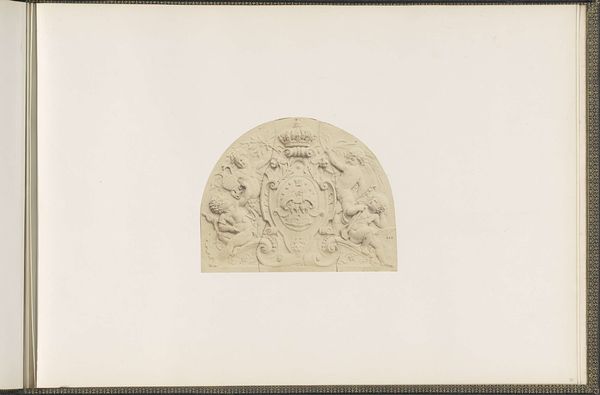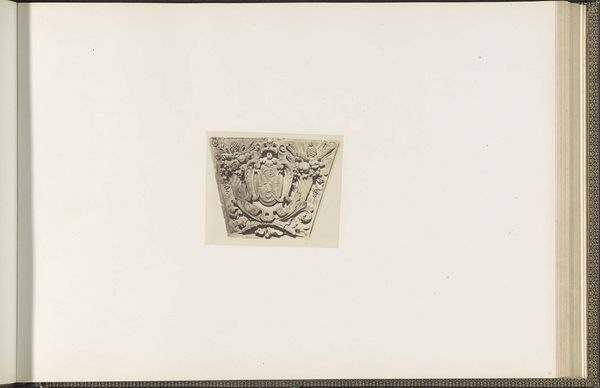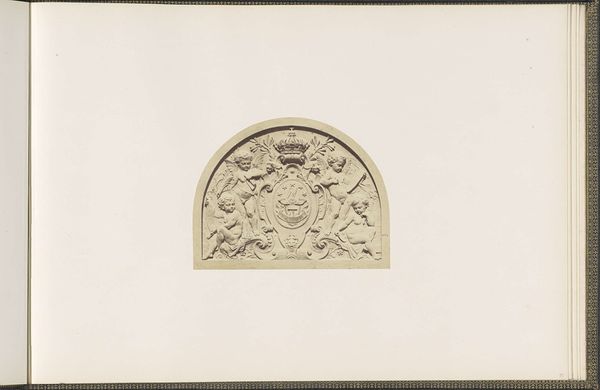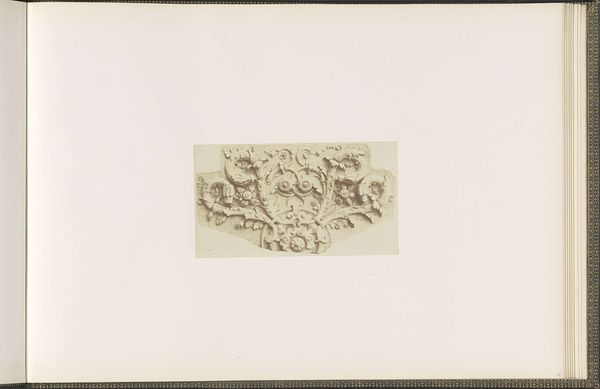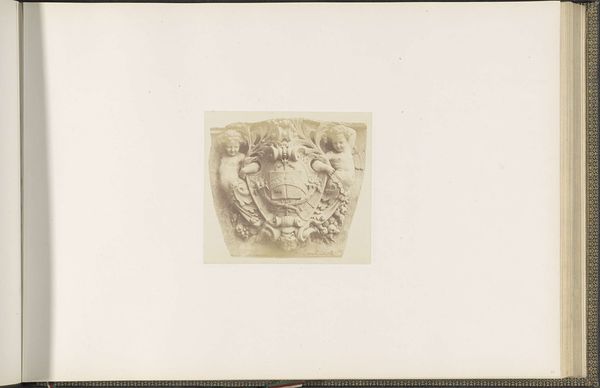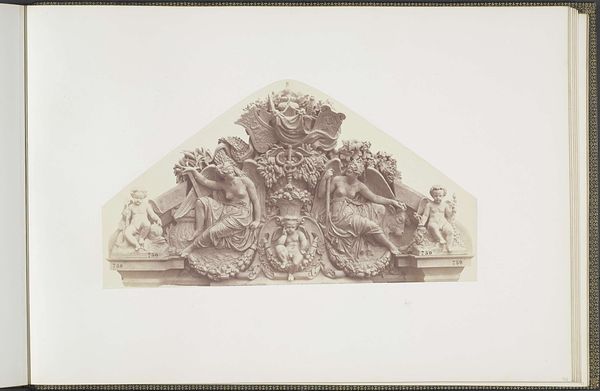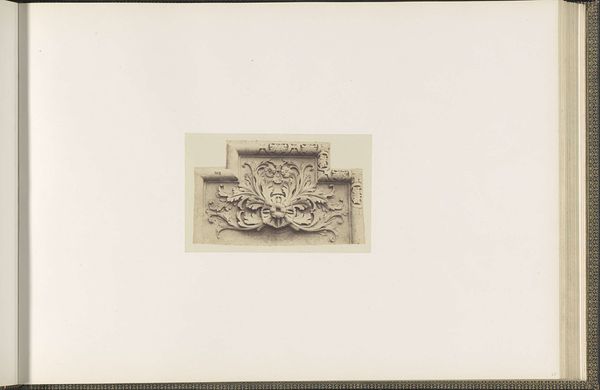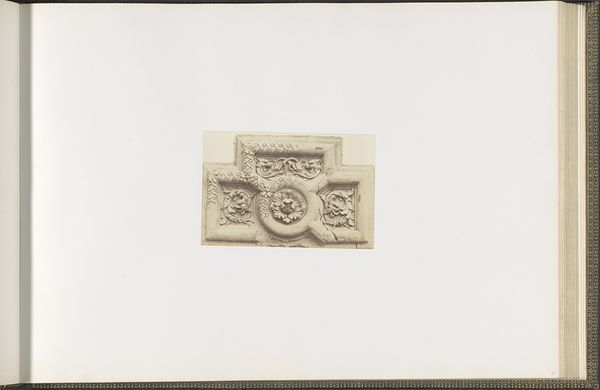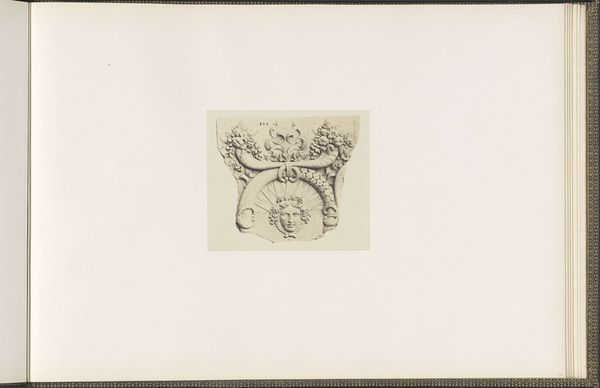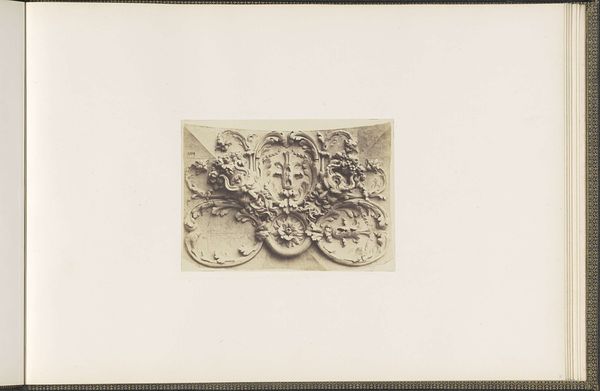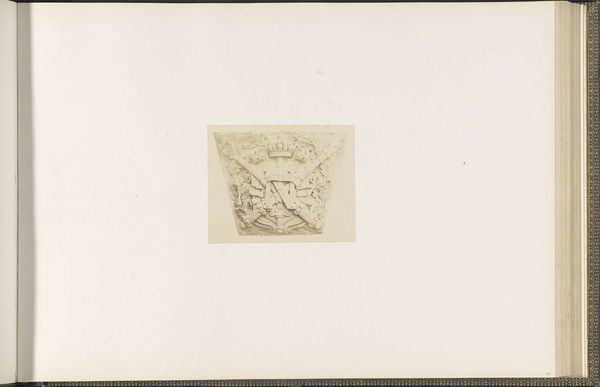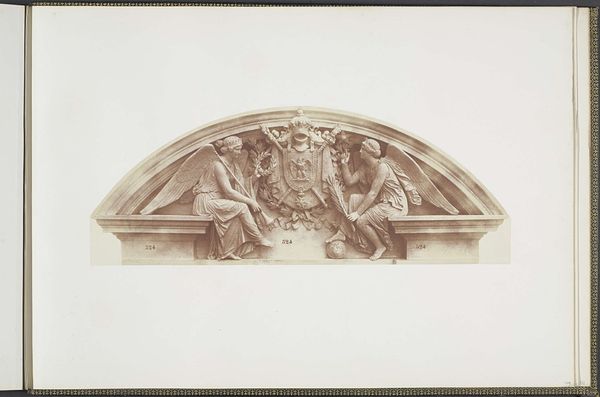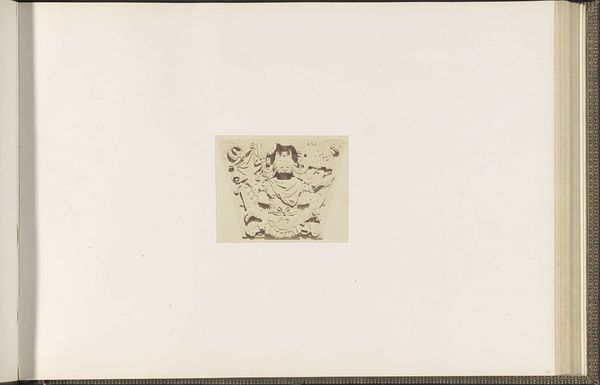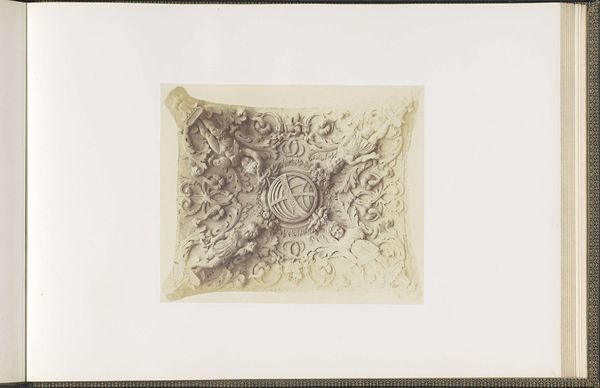
Gipsmodel voor beeldhouwwerk op het Palais du Louvre: "L'Abondance et la Paix" door Théodore Gruyère c. 1855 - 1857
0:00
0:00
edouardbaldus
Rijksmuseum
print, photography, sculpture, albumen-print
#
portrait
#
neoclacissism
#
allegory
# print
#
photography
#
sculpture
#
history-painting
#
academic-art
#
albumen-print
Dimensions: height 376 mm, width 523 mm
Copyright: Rijks Museum: Open Domain
Editor: This albumen print captures a plaster model from the mid-1850s, a design by Théodore Gruyère titled "L'Abondance et la Paix." It feels like a symbolic representation of power and prosperity, yet strangely distant through the photographic medium. What layers of meaning are embedded in this seemingly straightforward allegorical sculpture? Curator: Indeed. Look at the figures flanking the central coat of arms. What do they evoke for you in terms of established symbolic languages? Notice their gestures, their attire. Editor: Well, they remind me of classical figures, goddesses maybe. One holds what looks like a cornucopia, overflowing with fruit. The other seems to offer an olive branch. Is that an eagle on the crest? It does seem very intentionally evoking the imagery of wealth and concord. Curator: Precisely. The cornucopia is a potent symbol of abundance, the olive branch of peace. This sculptural group intended to visually communicate ideals of national strength through both agriculture and diplomacy. The eagle, a common symbol of power found in many cultures, reinforces this, wouldn't you agree? Do you see echoes of Roman imperial imagery here? Editor: Yes, definitely. The draping and the idealized figures harken back to neoclassicism and the Roman Empire. It is all so controlled and deliberate. But isn't there a tension in representing "abundance" and "peace" through such rigid forms? Curator: That tension, that visual paradox, is exactly where cultural memory resides. What this iconography hides or obscures – the cost of empire, for example – can reveal as much about the culture producing it as what it explicitly displays. Editor: So, it’s not just about the symbols themselves, but what those symbols were meant to conceal or promote, like a curated national narrative. Thanks for making this piece less distant to me, and for drawing out that underlying message. Curator: My pleasure. Recognizing the hidden depths within seemingly straightforward imagery allows us to read history anew.
Comments
No comments
Be the first to comment and join the conversation on the ultimate creative platform.
